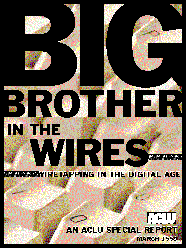
Court upholds VOIP wiretapping
A U.S. Federal Communications Commission (FCC) ruling requiring Voice Over IP (VOIP) providers to give law enforcement agencies wiretapping capabilities is legal, a court ruled Friday.
The U.S. Court of Appeals for the District of Columbia upheld the FCC’s August 2004 ruling saying interconnected VOIP (voice over Internet Protocol) providers must allow wiretapping by May 14, 2007. Several groups, including the American Council on Education, Sun Microsystems and the Center for Democracy and Technology (CDT), had appealed the ruling, saying it could introduce security vulnerabilities into VOIP services and drive up costs for customers.
The FCC ruling requires VOIP providers that provide a substitute service for traditional telephone service to comply with a 1994 telephone wiretapping law called the Communications Assistance for Law Enforcement Act (CALEA). The U.S. Department of Justice and the U.S. Federal Bureau of Investigation (FBI), in requesting the ruling, argued that their surveillance efforts are “compromised” without CALEA rules for VOIP.
FCC Chairman Kevin Martin said in a statement he was pleased with the court’s decision. “Enabling law enforcement to ensure our safety and security is of paramount importance,” he said. “[The decision] will ensure that law enforcement agencies’ ability to conduct lawful court-ordered electronic surveillance will keep pace with new communication technologies.”
But the CDT said the FCC ignored U.S. Congress’ efforts to keep regulations away from IP services.
“This ruling threatens both civil liberties and technology innovation,” CDT Policy Director Jim Dempsey said in an e-mail. “This decision threatens the privacy rights of innocent Americans as well as the ability of technology companies to innovate freely.”















woo hoo!!!! This is the best thing that will ever happen to voip. Here is why. The geek acceptance factor of voip will now fall to zero. People will start using voip as an internet device rather than a POTS retrofit. That means end to end encryption, and no phone numbers, more like IM. Ed of game for telephone companies. End of game for law enforcement.
Game over telcoindustriallawenforcementcomplex. You lose.
This is a-okay with me because we “delivered justice” to that evil guy. Long live King Bush.
Don’t count on it Greg…If these services can’t be monitored, expect them to be banned. And by the way this wiretapping is the same type that has been used with POTS for decades with the authority of a court order. They have been used fight organized crime, terrorism and just plain scumbags. Since you seen to be opposed to it, it makes me wonder what kind of illegal activity your up to. Or you may just be an anarcist.
No biggie. I never use the phone anymore anyway, but if I did, I’d do SIP calling through Zimmerman’s Zfone tool.
Since when did the U.S. Court of Appeals for the District of Columbia become the “Supreme Court”?
I guess I’m just nitpicking, but . . . it wasn’t the US Supreme Court, it was the U.S. Court of Appeals for the District of Columbia.
gc — is it just that you never read any history or what?
The last class action suit I participated in — along with 2,000 other people — against the FBI, a local police dept and phone company for illegal wiretapping included ZERO people who were ever charged with breaking any laws. Although I always thought Joe Lieberman should have been prosecuted for being stodgy and boring.
It was virtually identical to the suits now being pursued. The cruds in charge couldn’t be bothered with legal procedures. It was proven in the whole class action that they had no justifiable grounds in the first place.
Lawmen need damned little evidence to get a judge to cooperate with a wiretap order. The typical reason isn’t laziness. It’s because even a sleazy judge won’t justify a fishing trip for cops who won’t read the Constitution.
I knew this would happen. Of course!! The government is able to tap your phone with a probable cause and a court order (see United States Constitution, Amendment IV). Did you really think that would change when the form of communication changes????
Now, of course, if your concerned about hackers, you can always use encryption. That’s the good news.
#5 & 6: Quite correct. Fixed!
This is a completly futile effort, the very people they will be trying to wire tap will just use open source solutions with encrypted tunnels, which just results in the use of encryption technologies that are unbreakable and therefore no wire tap facilities. Meaning the only people they can wire tap will be the innocent people.
The decision is a logical one, and the FCC made the right call. Unless you believe all legal, justified wiretapping is bad (which I don’t), making an exception for VOIP is just plain silly.
One of the major functions of the “higher” courts is to determine which law holds when they are contridictory to each other in a particular circumstance. This is what happend. No big deal here, happens all the time.
“Enabling law enforcement to ensure our safety and security is of paramount importance.”
Any time somebody starts talking about making me safe and secure I start thinking about cramped little padded rooms with an always on, bare light bulb hanging from the ceiling.
All the eavesdropping in the world will not stop the rapists, killers, robbers, muggers and other assholes who stalk their prey all across our country. Until a child can walk unmolested in any darkened corner of our society we cannot claim to be a safe and secure society, no matter how many phone calls the creepy voyeurs in law enforcement listen in on.